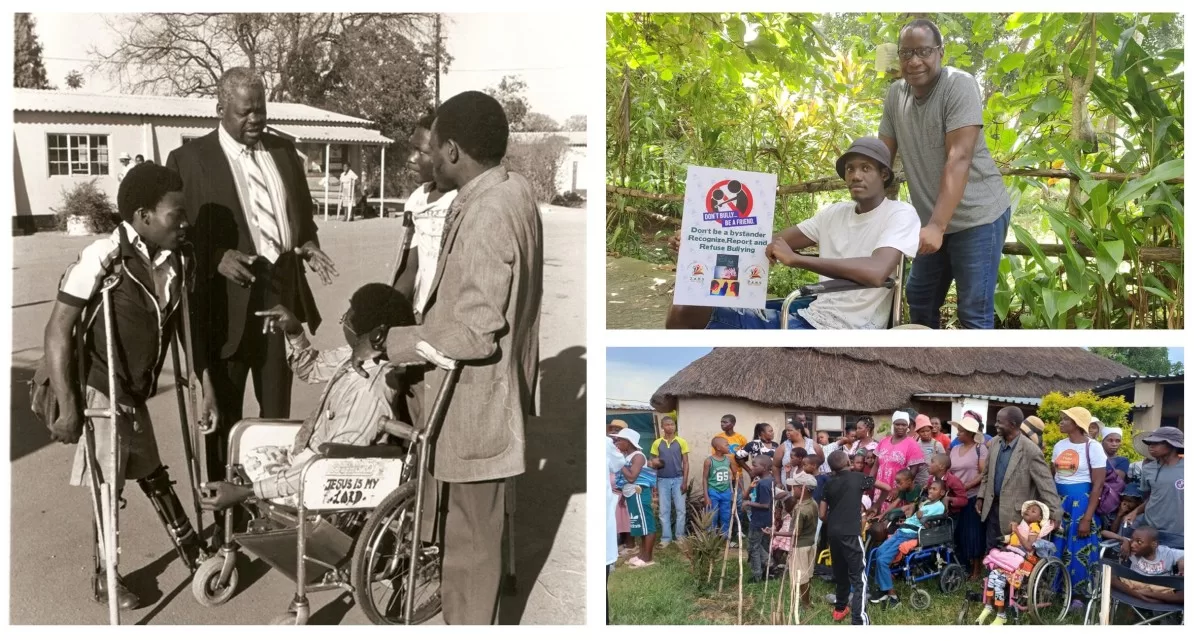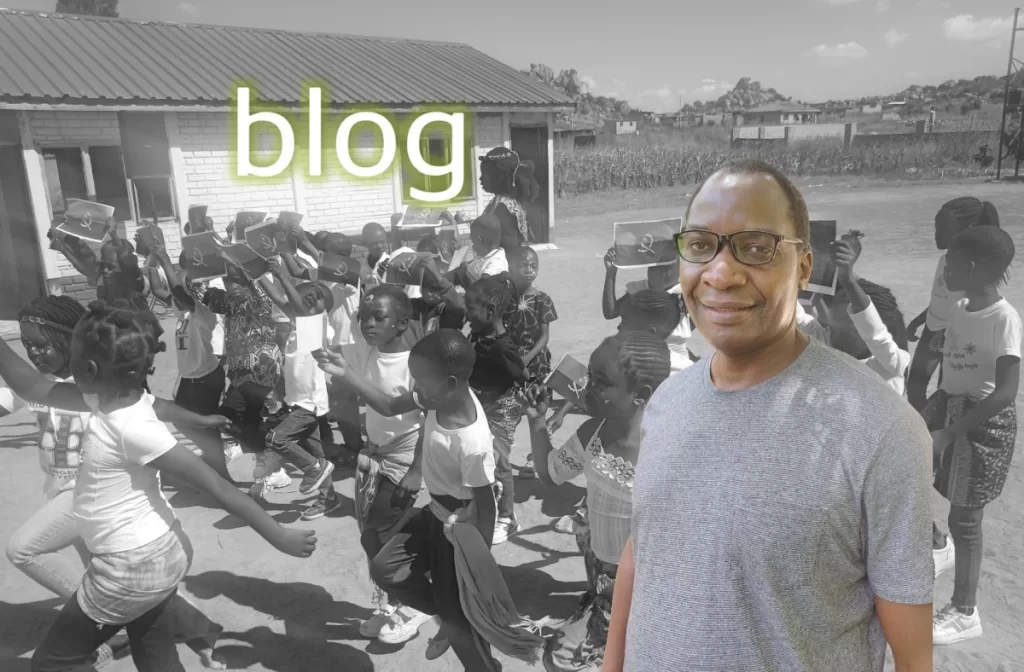kanthari blog – Archford Kiwiti – Zimbabwe
In 1997, at a CITES conference held at the Harare Sheraton, a young woman’s powerful voice captivated the room. Her singing moved dignitaries, diplomats, and even the president, capturing the heart of the nation and unsettling one man confined to a life of limitations. When I approached her, introducing myself, she seemed uninterested and refused me. But that “no” did not end anything, instead, it sparked a connection that would grow into something life-changing.
Before love found me, I was a child born into a world that did not know how to love people living with disabilities. I was not confident then; I internalized my energy, anger, and bitterness. My parents noticed something was wrong within months after I was born, I failed to achieve basic developmental milestones, my hands were too weak to hold anything, and my right leg was thin, twisted, and deformed. My disability was viewed as punishment from ancestors, witchcraft, or a curse.
My mother knew that caring for me would be exhausting and expensive, likely a lifelong burden. The last resort was a children’s home founded by Jairos Jiri in the 1950s, where disabled and abandoned children were taken. Jairos Jiri made us believe we had a father but no mother. My parents signed the adoption papers, effectively relinquishing their rights, and visits were allowed, though I was no longer truly their child. I missed the bond between mother and child, taken away when it mattered most.

Throughout childhood, I underwent multiple surgeries to correct deformities, including artificial bones in my right leg when I was about fourteen. During this time, my mother and aunt visited and eventually “kidnapped” me from the home, hiding me in a rural village. Though arrested briefly, my mother’s love drove her to become my self-trained nurse, teaching me to walk, balance, and strengthen my fingers. Through pain and struggle, we built trust, though tension filled our home. I felt disconnected, believing my family were strangers and resenting my condition and even God. School was harsh; bullied, taunted, and excluded.
Being different makes children more vulnerable to bullying. Physical weakness, communication challenges, or low self-esteem can make it hard to stand up to peers. Craig Dani, born with spina bifida, a birth defect where the spinal cord doesn’t close during pregnancy, faces neurological challenges and relentless bullying.
When I met Craig, his face lit with anticipation as his grandmother lifted him. But when visitors arrived, he was quickly withdrawn inside, shielded from strangers. Craig’s mother eloped at sixteen and was told bleakly that his quality of life would be poor. She was advised to terminate the pregnancy but lacked full information. Tears welled as she recounted these moments.
Hundreds of disabled children like Craig are hidden in Zimbabwe out of shame and stigma. His attempts to enrol in government schools led to constant bullying, name-calling, blame, beatings, and exclusion. Despite this, his determination to learn and make friends kept him going.
Craig explained that some pupils laughed or feared him because of his differences, but he never took it personally. Poverty compounded his challenges; unemployed parents could not afford qualified teachers and relied on untrained help. Nearby schools lacked resources, knowledge, and adaptive curricula, leaving him underserved.
Disability in Zimbabwe means courage, facing exclusion in daily life: shame of leaving the house, difficulty expressing thoughts, health costs, limited mobility, bullying, lack of rehab services, poor transport, and discrimination. Yet Craig remains determined to pass exams and advance his education.
He’s mocked endlessly, called a “vampire” or “alien” for using a wheelchair. Each day brings dread and physical sickness at the thought of walking into school, despite teachers knowing about the bullying. Like my mother, Craig’s mother endured harsh community judgment but stood firm.
Today Craig spends most of his time in the house away from the public eye, reading his books as he hopes to be a medical doctor someday. Soon he will be writing his examinations and possibly go for the upper 6, then to college. All he wants is education, which will lead him to the Promised Land. In parting, Craig asked me to help him write a book on disability. I knelt down to be on the same wheelchair level, gave him a hug, and he smiled, then, I assured him that nothing was too difficult for the brave!
Having gone through all I went through, I channelled my pain into purpose by founding the Zimbabwe Anti-Bullying Society (ZABS) as well as launching a lifesaving medical emergency service for the disabled.
Each time I unlock my phone, a photo of Jairos Jiri reminds me of the debt of gratitude I owe him for changing my life.
Read more kanthari blog posts on: https://www.kanthari.org/coronablog/



